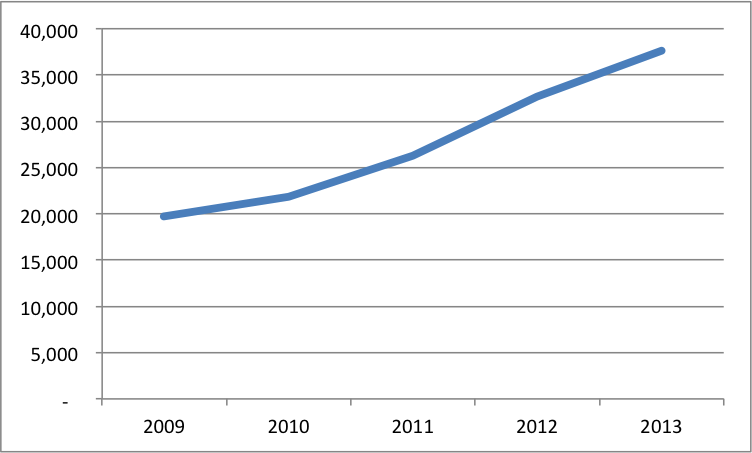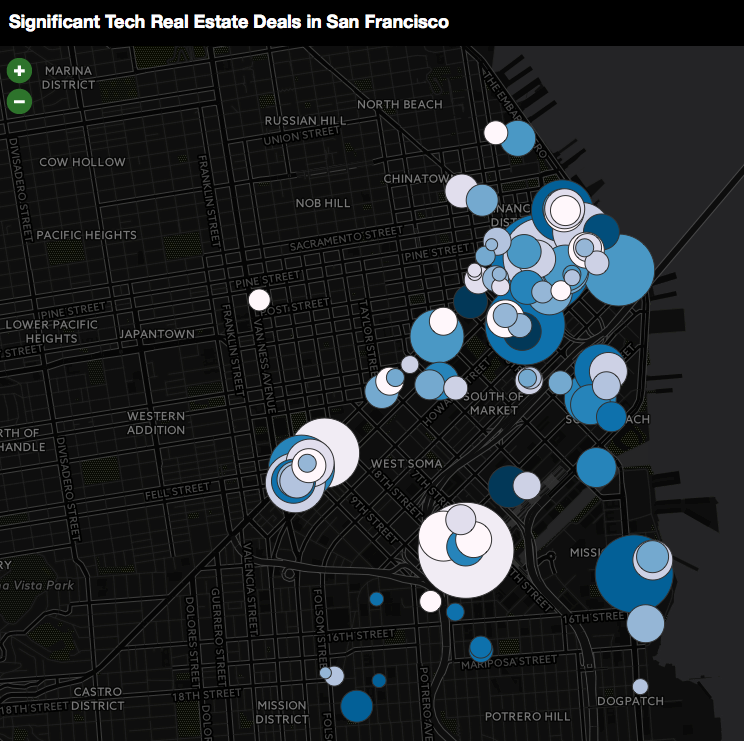In February, we released our latest CityReport documenting a remarkable turnaround in the pattern of job growth within metropolitan areas. After decades of steady job decentralization, the period 2007-2011 marked the first time that city centers in the nation’s largest metropolitan areas recorded faster job growth than their surrounding peripheries. Much of that rebound seemed to be associated with the movement of talented young workers back to cities, and the industrial composition of growth in cites–with high-skilled service and software firms choosing urban locations.
Perhaps no where is this trend more in evidence than in San Francisco. The city is in the midst of a boom in both population and employment growth.
All the controversy about the “Google Bus” and other corporate shuttles that ferry San Francisco residents to jobs in Silicon Valley, an hour or so to the south, miss the burgeoning growth of high tech firms in the city itself. The growing desire of young well-educated workers to live in cities is making the central city location much more advantageous for tech firms, relative to the traditional Silicon Valley office parks, than in decades past. As a result, in the past several years, technology firms have increasingly started, expanded or relocated in San Francisco.
A recent report from the City of San Francisco’s Planning Office chronicles the growth of tech jobs–in software, telecommunications, information services and related sectors of the economy– in San Francisco. Over just the past four years, employment in the city’s tech sector has increased about 90 percent, from 19,700 jobs in 2009 to 37,600 in 2013.
The tech industry’s growth has been highly concentrated in the city’s fast-changing South of Market area. CM Commercial Real Estate has mapped the significant leasing deals by tech firms over the past three years. You can see the size and timing of these developments on their animated map (click on the image below to visit their website).
Data from CM Commercial Real Estate
The concentration of talented workers in San Francisco and the tight clustering of tech firms is a reminder of the real power of agglomeration effects in our knowledge-based economy. Building on the strength of urban amenities to attract and retain well-educated workers with choices creates a strong talent base that leads firms to gain economic advantage by locating nearby. San Francisco is now at a point where these two trends are mutually reinforcing: the base of talent attracts more firms; the abundance of employment opportunities attracts more workers. The key limiting factor going forward is the supply of housing in San Francisco. As we’ve argued before, what this really illustrates is our shortage of great urban spaces. As more Americans seek urban living, and as the firms that need to employ talented workers cluster nearby, the demand for housing in cities surges, and unless housing supply keeps pace, rising prices and affordability problems will likely worsen.



